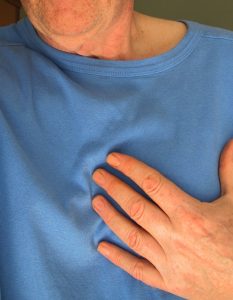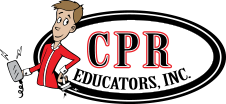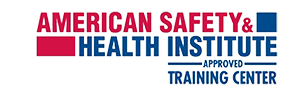At our Raleigh CPR training facility, we specialize in  teaching people how to recognize and respond to medical emergencies. We know that the sooner the warning signs are addressed, the more likely the victim is to have a positive outcome.
teaching people how to recognize and respond to medical emergencies. We know that the sooner the warning signs are addressed, the more likely the victim is to have a positive outcome.
However, we see too many people who either ignore serious symptoms or don’t think they are severe enough to warrant emergency treatment. This can lead to serious consequences and even death in the most severe situations. That’s why we want to share how to recognize a true medical emergency and provide tips on how to respond effectively.
Recognizing the Signs of a Medical Emergency
A medical emergency can often seem like it comes out of nowhere, such as when someone loses consciousness. However, many medical emergencies, such as strokes or heart attacks have symptoms that need to be addressed immediately. The following symptoms are signs of a medical emergency:
- Chest pain
- Sharp pain in the left arm or through the jaw
- Shortness of breath
- Loss of consciousness or fainting
- A change in mental status, such as severe, sudden confusion, memory loss, or aggression
- Sudden weakness or dizziness
- Vision changes (tunnel vision, double vision)
- Severe, sudden pain anywhere in the body
- Severe abdominal pain or pressure
- Numbness or tingling, especially in the extremities
If you, a loved one, or even someone nearby, such as a coworker, is experiencing these symptoms, medical help is needed immediately.
In the event that someone is injured, such as in a fall or an accident, it’s important to correctly assess if a person needs emergency medical intervention. If any of the following signs are present, the victim needs to receive immediate attention:
- Severe bleeding or bleeding that won’t stop
- Head or spine injury
- Severe pain anywhere in the body
- Loss of consciousness
- Injury caused by a vehicle accident
- Serious burns or smoke inhalation
- Severe nausea or vomiting (possibly caused by ingesting a poisonous substance)
Responding to a Medical Emergency
If you recognize the signs of a medical emergency, what should you do? Taking the wrong step can waste crucial moments or even put someone else in danger.
If the condition is life threatening, such as the victim is showing signs of a heart attack, isn’t breathing, or has received a severe injury, be sure to stay calm and follow these steps:
- Call 911 or instruct a specific person to do so and speak slowly and clearly.
- Don’t move the victim if there is head or neck trauma.
- Assess the safety of the location and if administering care is safe. For example, if you or the victim are possibly in the way of traffic, fire, or toxic fumes, it’s important to get yourself to safety.
- Check for a pulse and for breathing. If you know the proper technique, begin CPR if needed.
When you’re in doubt about the situation, it’s always best to err on the side of caution. For example, if you’re uncertain as to whether you should call for an ambulance or transport the victim yourself, consider if the victim’s symptoms are life threatening or could become so. Also, consider whether or not it’s safe to transport them, or if they would experience a better outcome with the assistance of EMTs or paramedics.
Being Prepared for a Medical Emergency
Fast action is crucial during an emergency, which is why it’s important to be prepared for any event.
Keep Emergency Numbers Handy
Keep numbers for emergency contacts, poison control, fire, police, and medical facilities clearly labeled in your phone and also keep them clearly posted in your home or workplace.
Know the Closest Hospital and Best Route
In the event the victim doesn’t require an ambulance, knowing the closest hospital and best route to get there will ensure a faster response. This is not the time to depend on your phone’s GPS, you want to be familiar with the route you’re using.
Wear a Medical ID Tab
If you have an illness that first responders should know about, like diabetes, it’s important to wear that ID at all times. Likewise, look for an ID on a victim so you can alert 911 or first responders.
Keep a Stocked First Aid Kit in Your Vehicle, Work, and Home
If there is a medical emergency caused by injury, having a first aid kit can help with bleeding, burns, and other issues while waiting for medical treatment. Make sure everyone knows what’s in the kit, where it is, and to regularly replace items in it if they get used or expire.
Take a CPR Training Class and First Aid Class
The number one thing you can do to be prepared for an emergency is take a CPR training class. Knowing how to correctly administer CPR and first aid can and does save lives on a daily bases across the country.
Contact Us for CPR Training and First Aid Classes in Raleigh
CPR Educators, Inc. provides comprehensive CPR training and first aid education at our American Heart Association-Approved facility, and we also offer on-site classes for businesses and organizations. Contact us today at (919) 639-4848 or fill out our contact form to learn more about our classes and training programs!



